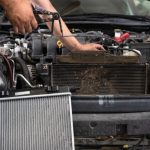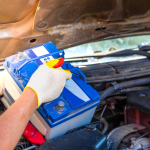Hyundai is making significant strides in the development of hydrogen-powered trucks, positioning itself as a leader in the transition to sustainable transportation. With growing concerns about climate change and the environmental impact of traditional diesel trucks, this company is investing heavily in hydrogen fuel cell technology as a viable alternative. This article explores Hyundai’s ambitious plans to release hydrogen-powered trucks, the technology behind these vehicles, and the potential impact on the transportation industry.
Hyundai’s Vision for Hydrogen-Powered Transportation
Commitment to Sustainability
Hyundai has long been at the forefront of automotive innovation, and its commitment to sustainability is evident in its latest venture into hydrogen-powered trucks. The company recognizes the urgent need to reduce carbon emissions and is dedicated to developing alternative energy solutions that can meet the demands of modern transportation. Hydrogen fuel cells offer a promising path forward, providing zero-emission energy that can power large vehicles like trucks over long distances.
The push towards hydrogen-powered trucks is part of this company’s broader vision of a cleaner, more sustainable future. The company has set ambitious goals for reducing its carbon footprint and is investing in a range of green technologies, from electric vehicles to hydrogen fuel cells. By leading the charge in hydrogen-powered transportation, Hyundai aims to set a new standard for the industry and inspire other automakers to follow suit.
Global Leadership in Hydrogen Technology
Hyundai is not new to hydrogen technology; the company has been a global leader in this field for years. With the launch of its hydrogen-powered passenger vehicle, the NEXO, Hyundai demonstrated the feasibility and potential of hydrogen as a clean energy source. Building on this success, Hyundai is now focusing on applying hydrogen fuel cell technology to commercial vehicles, particularly trucks, which are a significant source of carbon emissions.
The company’s expertise in hydrogen technology gives it a competitive edge in the race to develop hydrogen-powered trucks. Hyundai has already established partnerships with key stakeholders, including governments, energy providers, and logistics companies, to create the infrastructure needed to support hydrogen-powered transportation. This comprehensive approach ensures that Hyundai is well-positioned to lead the transition to hydrogen-powered trucks on a global scale.
Read More: Stellantis plans Massive Layoffs at Warren Truck Assembly Plant
Technology Behind Hyundai’s Hydrogen-Powered Trucks
Hydrogen Fuel Cell Systems
At the heart of Hyundai’s hydrogen-powered trucks is the hydrogen fuel cell system, a technology that converts hydrogen into electricity to power the vehicle. Unlike traditional internal combustion engines, hydrogen fuel cells produce no harmful emissions; the only byproduct is water vapor. This makes hydrogen fuel cells an ideal solution for reducing the environmental impact of heavy-duty vehicles.
The fuel cell system in Hyundai’s trucks is designed to deliver high performance and efficiency. It consists of several key components, including the fuel cell stack, which generates electricity, and the hydrogen storage tanks, which store the hydrogen fuel. The system is capable of producing a significant amount of power, making it suitable for heavy-duty applications such as trucking, where reliability and endurance are critical.
Advantages Over Electric Trucks
While battery-electric trucks have garnered significant attention in recent years, hydrogen-powered trucks offer several advantages, particularly for long-haul transportation. One of the main benefits of hydrogen fuel cells is their ability to provide a longer driving range compared to electric batteries. This makes hydrogen-powered trucks more practical for long-distance travel, as they require fewer stops for refueling.
Another advantage of hydrogen-powered trucks is the faster refueling time. While electric vehicles can take hours to recharge, hydrogen trucks can be refueled in just a few minutes, similar to refueling a diesel truck. This efficiency is crucial for the logistics industry, where time is often a critical factor. Hyundai’s hydrogen-powered trucks are designed to offer the same convenience and reliability as traditional diesel trucks, with the added benefit of being environmentally friendly.
Potential Impact on the Transportation Industry
Reducing Carbon Emissions
The introduction of hydrogen-powered trucks by Hyundai could have a significant impact on reducing carbon emissions in the transportation industry. Trucks are responsible for a large portion of global greenhouse gas emissions, particularly in the logistics and freight sectors. By replacing diesel trucks with hydrogen-powered alternatives, Hyundai is contributing to a substantial reduction in the carbon footprint of these industries.
Hydrogen-powered trucks emit no CO2, making them an attractive option for companies looking to meet sustainability goals and comply with increasingly stringent environmental regulations. As more companies adopt hydrogen-powered trucks, the cumulative effect on emissions reduction could be substantial, helping to mitigate the impact of climate change.
Shaping the Future of Commercial Transportation
Hyundai’s commitment to hydrogen-powered trucks is likely to shape the future of commercial transportation. As one of the first major automakers to invest heavily in hydrogen technology for trucks, Hyundai is setting a precedent for the industry. This move could encourage other manufacturers to explore hydrogen as a viable alternative to diesel and electric powertrains, leading to greater innovation and competition in the market.
The adoption of hydrogen-powered trucks could also lead to significant changes in the logistics and freight industries. Companies may need to invest in new infrastructure, such as hydrogen refueling stations, to support these vehicles. Additionally, the widespread use of hydrogen-powered trucks could influence supply chain strategies, as companies seek to optimize routes and operations to take advantage of the new technology.
Challenges and Considerations
Infrastructure Development
One of the main challenges facing the widespread adoption of hydrogen-powered trucks is the need for adequate infrastructure. Hydrogen refueling stations are currently limited, particularly outside of major urban centers. For Hyundai’s hydrogen-powered trucks to become a viable option for long-haul transportation, there will need to be significant investment in the development of a comprehensive hydrogen refueling network.
Hyundai is aware of this challenge and is actively working with governments and industry partners to expand hydrogen infrastructure. The company is involved in several initiatives aimed at increasing the availability of hydrogen refueling stations, particularly along major freight corridors. This collaboration will be essential to the successful deployment of hydrogen-powered trucks on a large scale.
Cost and Economic Viability
Another consideration for the adoption of hydrogen-powered trucks is the cost. Currently, hydrogen fuel cell technology is more expensive than traditional diesel engines and battery-electric systems. This higher cost is partly due to the complexity of the technology and the relatively low production volumes of hydrogen vehicles.
However, Hyundai is optimistic that costs will decrease as the technology matures and economies of scale are achieved. The company is investing in research and development to improve the efficiency and affordability of hydrogen fuel cells. Additionally, as demand for hydrogen-powered vehicles grows, the cost of hydrogen fuel is expected to decrease, making it a more economically viable option for commercial transportation.
Hyundai’s Roadmap for Hydrogen-Powered Trucks
Upcoming Releases and Targets
Hyundai has set ambitious targets for the release of its hydrogen-powered trucks. The company plans to introduce its first models in select markets by 2024, with a focus on regions with established hydrogen infrastructure. These initial releases will serve as a proving ground for the technology, allowing Hyundai to gather data and refine its products before expanding to other markets.
By 2030, Hyundai aims to have a significant portion of its commercial vehicle lineup powered by hydrogen. The company is committed to leading the industry in the adoption of hydrogen technology and believes that hydrogen-powered trucks will play a key role in achieving a zero-emission future. Hyundai’s roadmap includes not only the development of hydrogen trucks but also the expansion of hydrogen production and distribution networks.
Collaboration and Partnerships
To achieve its goals, Hyundai is actively seeking collaborations and partnerships with other stakeholders in the hydrogen ecosystem. The company has already formed alliances with energy companies, government agencies, and other automakers to accelerate the development of hydrogen infrastructure and technology. These partnerships are crucial for overcoming the challenges associated with hydrogen adoption and ensuring the success of Hyundai’s hydrogen-powered trucks.
Hyundai is also exploring opportunities for collaboration with logistics companies and fleet operators. By working closely with these partners, Hyundai can better understand the needs of the commercial transportation industry and develop solutions that meet those needs. This collaborative approach is central to Hyundai’s strategy for making hydrogen-powered trucks a mainstream option in the near future.
Conclusion
Hyundai’s ambitious plans to release hydrogen-powered trucks mark a significant step forward in the transition to sustainable transportation. With its advanced hydrogen fuel cell technology, Hyundai is poised to lead the industry in reducing carbon emissions and shaping the future of commercial vehicles. While challenges remain, Hyundai is committed to overcoming them through innovation, collaboration, and investment in infrastructure. As the company moves forward with its plans, hydrogen-powered trucks are set to become a key component of Hyundai’s vision for a cleaner, greener future.











